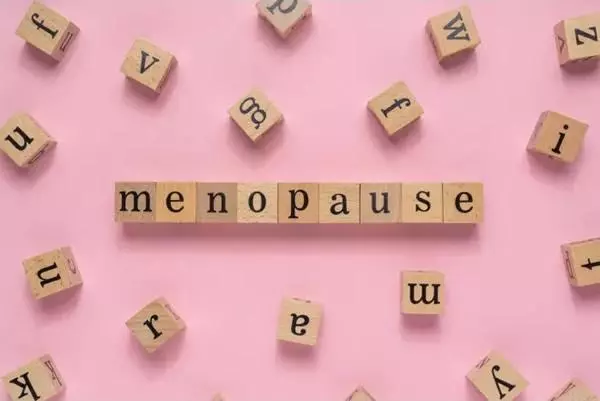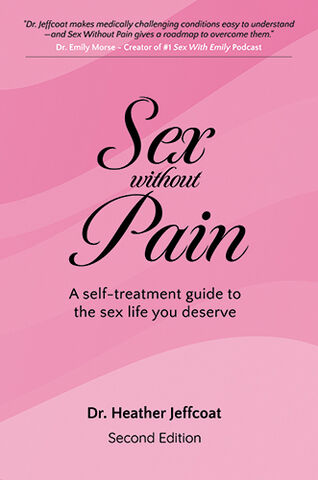Heather Jeffcoat, DPT
Tips From the Experts on How to Orgasm After Menopause
And why it often comes down to "use it or lose it"
Let's presume you are a postmenopausal woman whose overall health is good. You eat right, get enough exercise, and live a mostly pain-free, comfortable life. Even with all that going for you, chances are your sex life has slowed down a bit from when you were younger. This is only natural, but it doesn't mean you have to shun sex altogether or enjoy it any less when that moment arrives.
As the article states:
No more periods, cramping, bloating or PMS to ruin your mood—or your plans between the sheets? It may sound divine, but entering the menopausal phase of your life can also come with a few downsides.
In short, take stock in the freedom this gives you to explore this new phase of life! Sure there are other challenges, but try to see the glass as half full, not the other way around.
But having an orgasm after menopause isn’t impossible. In fact, there are loads of ways to address the common symptoms of menopause that many women face so you can get your love game back on track and enjoy having sex with your partner again.
THE BIG QUESTION:
Can a Woman Have an Orgasm After Menopause?
If the answer were "no", there wouldn't be much point to this artice, right? So just know that you can still do it, only perhaps with a slightly different mindset and approach.
Just because you may be entering menopause or you’ve already completed this stage doesn’t mean your ability to achieve orgasm has gone out the window. Whether you were used to vaginal orgasms in your pre-menopause life or, like most women, your climaxes arrived via clitoral stimulation, the ability to have an orgasm still exists.
So now that you know you can still do it, find out what's been holding you back and what you can do about it!
Reasons Orgasming After Menopause May Be Difficult
As mentioned in this "must read" article on our blog, more than 80% of those with menopause report physical and psychological changes the period before, during and after the last menstrual cycle with 77% of respondents experiencing changes in their genitals (vulva, vagina, pelvic floor) that affected their lifestyle, emotional well-being, and sexual function. The Parade article lists some of the effects of these changes that can include:
- Less desire
- Vaginal dryness (and elasticity) which equals pain
- Urinary issues, including leakage, incontinence or the need to go
- Trouble sleeping, stress and anxiety
- Mood swings and irritability
- Worry about aging and the changes it brings to the body
The hormonal effect - or lack thereof
A woman’s sex steroid hormones are also in decline during menopause, says Julianne Arena, MD, an OB-GYN specializing in traditional and integrative healthcare. “One of these is estradiol, a form of estrogen that not only protects the bones and heart, but also the vagina,” she explains. As women get older, the vagina’s tissue and the clitoris have less estrogen and these factors can make having an orgasm challenging, she adds.
This might lead you to think that hormone replacement therapy may be the answer to your lack of orgasms - but is it worth the reported risks? Here is a great article that looks at hormone replacement therapy from all sides. Long story short, it's a temporary fix at best for most women.
How to Orgasm After Menopause
Let's face it - life tends to slow down for many people once they pass the 50 year mark. For postmenopausal women, this could mean that you have more time to enjoy the sexual experience. Sure you may not get in all those "quickies" you used to when you were younger, but you can use this newfound way of experiencing sex to draw out the pleasure in a more relaxed, timely way. You may just need to find a new mindset and learn to not place so much emphasis on quantity, but rather quality.
Jennifer gets into some of the more specific tips that can benefit many women in their quest:
- Lube up. Use a lubricant to fight vaginal dryness or a vaginal moisturizer every two to three days.
- Try massage oil. A product called Zestra has also been shown to help the majority of women who used it in clinical trials.
- Make time for you. If you're past 50 and still keeping a fast paced schedule, strive to create pockets of time during your week for a warm bath, a yoga session, reading or whatever brings you joy.
- Work your pelvic muscles. "A stronger pelvic floor can mean more intense orgasms", says Heather Jeffcoat, DPT, a doctor of physical therapy and the author of Sex Without Pain. “But muscle weakness in this part of the body isn’t just about doing Kegels all the time—there has to be a balance between flexibility and strength.” Her advice: Speak with a pelvic health physical therapist who can set up a program to match your needs.
- Watch the alcohol. While a glass of wine can certainly be relaxing, too much alcohol can work against you.
- Get creative. Variety is the spice of life, or so the saying goes. Head outside to do the deed on a private beach, or book a room at a romantic inn.
- Cut back on sex toys. “It sounds counterintuitive, but some women will need to stop using the vibrator for a while due to clitoral trauma,” explains Dr. Cabeca.
- Talk about it. If what used to work for you isn’t cutting it, chat with your partner.
Curious about pelvic floor physical therapy for menopause?
Approximately half of all women can expect to live 40% of their lives in the post-menopausal stage. It makes sense to develop a solid strategy for optimal health, the earlier the better – and regular physical therapy can be an important component of that plan.
A pelvic floor therapist can help break the muscle tension cycle with manual therapy and teaching you self-treatment to maintain gains at home. By releasing pelvic floor tension, you free pelvic floor muscles, allowing for pain free sex. Pelvic floor therapists can also screen for musculoskeletal dysfunction in the spine, hips and pelvis; educate about sexual ergonomics and help you find positions that reduce pain during intercourse. Pelvic floor therapists can also provide you with self care programs which can reduce dryness and irritation in the tissues of the vulva, labia, and vaginal canal.
See this article entitled How Pelvic Floor Therapy Can Help, and this article with more info on pelvic floor physical therapy for menopause.
In closing, there are a number of things you can do to make intimacy more pleasurable. The article concludes:
Keep at it. Don’t give up! “Blood flow is improved with frequent ‘exercise’—which means if you don’t use it, you will lose it,” offers Wesley. Why not get busy tonight?
I agree, why not?!?
Heather
Continue reading the full article on how to orgasm after menopause at Parade.com here, and click here if you're ready to see one of our trained and licensed pelvic floor physical therapists.













